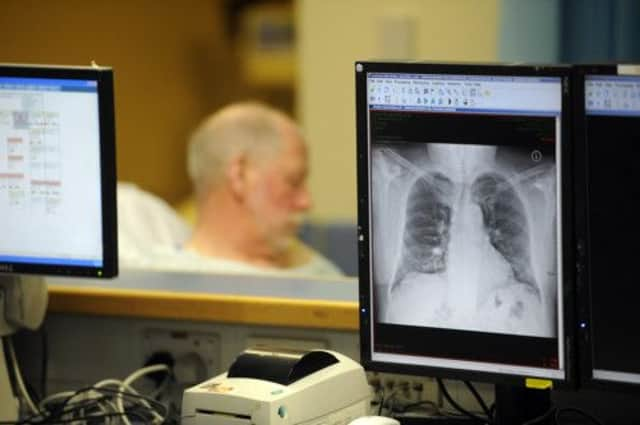Leaders: Debate about NHS spending must start now


Yet all is not well within Scotland’s public health service, according to the latest report from Audit Scotland – the nation’s respected independent financial watchdog. The NHS patient is exhibiting dangerous symptoms that threaten its long-term viability and performance. Yet, the politicians who are supposed to care for it seem wilfully blind to what is eating at our health service.
Most members of the public will not read what Audit Scotland has to say about the NHS. But it does not require the forensic skills of Audit Scotland to identify the problems facing the NHS. On one side, patient demand and expectations continue to rise remorselessly. Scotland’s population will increase by 10 per cent in the next quarter century, while the number of elderly folk will rise by over 60 per cent.
Advertisement
Hide AdAdvertisement
Hide AdOn the other hand, resources both financial and in the number of medical staff are now heavily constrained. Even if – a very big if – Holyrood ministers are correct in claiming the budget for NHS Scotland is “ring-fenced” from cuts, the spiralling cost of medical technology implies hidden rationing and the danger of a decline in service standards. Patient complaints about hospitals are already skyrocketing.
This is not to say that NHS Scotland is a disaster. By no means. It has escaped the outrageous failures in patient care seen in some English hospitals. The Scottish Government has a reasonable track record in making financial efficiencies in NHS Scotland – though Audit Scotland warns many of these are unrepeatable. And ring-fencing the health budget (at least in cash terms) is popular. However, there remains a dangerous myopia at Holyrood concerning the crisis that faces NHS Scotland, given the inevitable population pressures.
The ruling SNP is content to kick the problem into the political long grass until the 2014 referendum. Labour, the main opposition in Scotland, is a bit more willing to confront NHS realities, criticising the SNP’s decision to retain “free” prescriptions in a time of economic stringency. Yet Labour is no more willing to debate market-led structural reform of the NHS than is the SNP. Yet something has to give – be it permanently shifting resources from some other part of the public sector budget; reducing the blanket coverage of national health provision; injecting more competition into NHS Scotland on the English model; or even requiring individuals to pay more up front, as in Europe.
It is not a matter of choosing a given course right away, but of starting the debate about funding the NHS while there is still time to make a considered choice. The danger of the constitutional debate is that it will be used as a pretext to avoid this urgent and necessary debate. That must not happen.
Less techno-babble, more speed
The internet was once touted as the saviour of rural Scotland. A utopian image was promoted of folk moving from the congested cities to Scotland’s beautiful but under-populated hinterland. There they would revitalise the local economy and communities by starting e-commerce businesses. Alas, as with most utopias, reality has proved disappointing.
For a start, the average broadband speed in rural areas has risen to just 9.9Mbps, while average speeds in the cities as reached 26.4Mbps. And that assumes you can access broadband. According to Richard Lochhead, the Scottish rural affairs secretary, a fifth of Highland homes are still without potential access to broadband. Cue worries that the Highlands and Islands face a modern version of the Clearances – digital-era depopulation as people head south in search of faster Internet speeds.
This vision – like that of the Highlands as a new Silicon Valley – is exaggerated. The population of the Highland area is slated to increase by 15 per cent by 2035. Yet it is scandalous that a digital divide has opened up with our rural areas. Of course there are particular technical difficulties in building a fibre network across the most rugged terrain in the UK, as well as under the sea to the islands. But Scotland is hardly
Siberia or the North Pole. These difficulties are neither insurmountable nor reason for putting Scotland’s rural areas to the back of the queue when it comes to joining the Digital Age.
Advertisement
Hide AdAdvertisement
Hide AdThe Scottish Government and BT, which has the contract to supply the broadband system in the Highlands and Islands, have promised to do better. So they should. We need a less techno-babble and digital hype and a bit more old-fashioned application.
The Scotsman Conferences is hosting a series of events capturing the many facets of the Scottish independence debate. 3 December sees a formidable line up of expert speakers tackle “The Independence White Paper: A Business Plan for Scotland?” For more details on this and other great events please visit www.scotsmanconferences.com